
Foreign Correspondent is a 1940 American black-and-white spy thriller film directed by Alfred Hitchcock. It tells the story of an American reporter based in Britain who tries to expose enemy spies involved in a fictional continent-wide conspiracy in the prelude to World War II. It stars Joel McCrea and features 19-year-old Laraine Day, Herbert Marshall, George Sanders, Albert Bassermann, and Robert Benchley, along with Edmund Gwenn.

Sir Norman Bishop Hartnell was a leading British fashion designer, best known for his work for the ladies of the royal family. Hartnell gained the Royal Warrant as Dressmaker to Queen Elizabeth in 1940, and Royal Warrant as Dressmaker to Queen Elizabeth II in 1957. Princess Beatrice also wore a dress designed for Queen Elizabeth II by Hartnell for her wedding in 2020.

Virginia Lilian Emmeline Compton-Mackenzie,, known professionally as Fay Compton, was an English actress. She appeared in several films, and made many broadcasts, but was best known for her stage performances. She was known for her versatility, and appeared in Shakespeare, drawing room comedy, pantomime, modern drama, and classics such as Ibsen and Chekhov. In addition to performing in Britain, Compton appeared several times in the US, and toured Australia and New Zealand in a variety of stage plays.

Odd Man Out is a 1947 British film noir directed by Carol Reed, and starring James Mason, Robert Newton, Cyril Cusack, and Kathleen Ryan. Set in Belfast, Northern Ireland, it follows a wounded Nationalist leader who attempts to evade police in the aftermath of a robbery. It is based on the 1945 novel of the same name by F. L. Green.

Anton Diffring was a German actor. He had an extensive film and television career in the United Kingdom from the 1940s to the 1980s, latterly appearing in international films. Primarily a character actor, he often played Nazi officers in World War II films, and other antagonistic authority figures.
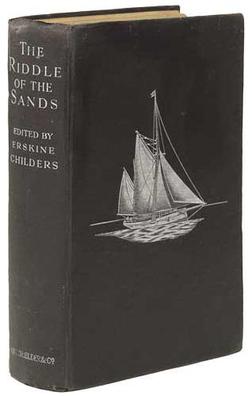
The Riddle of the Sands: A Record of Secret Service is a 1903 novel by Erskine Childers. The book, which enjoyed immense popularity in the years before World War I, is an early example of the espionage novel and was extremely influential in the genre of spy fiction. It has been made into feature-length films for both cinema and television.

The Hunters is a Swedish thriller film directed by Kjell Sundvall, which was released to cinemas in Sweden on 31 January 1996. A police officer from Stockholm moves back to his hometown Älvsbyn in Norrland, in northern Sweden. He starts to work on a long-running reindeer poaching case and soon discovers that his brother is involved.

Tarzan the Magnificent is a 1960 British Eastmancolor film, the follow-up to Tarzan's Greatest Adventure (1959) and the twenty-third film of the Tarzan film series that began with 1932's Tarzan the Ape Man. Its plot bears no relation to that of the 1939 Edgar Rice Burroughs novel of the same name. The film was directed by Robert Day and produced by Sy Weintraub and Harvey Hayutin. Gordon Scott made his last appearance as Tarzan in the film, while Jock Mahoney appeared as villain Coy Banton. Mahoney would take over the Tarzan role himself beginning in the next film, Tarzan Goes to India, in 1962. The motion picture does not include Jane.

London Belongs to Me is a British film released in 1948, directed by Sidney Gilliat, and starring Richard Attenborough and Alastair Sim. It was based on the novel London Belongs to Me by Norman Collins, which was also the basis for a seven-part series made by Thames Television shown in 1977.
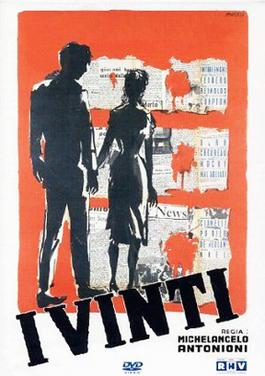
I vinti is a 1953 drama film directed by Michelangelo Antonioni. An anthology film, it consists of three separate stories in three different countries, all with the common theme of youths who commit murders. In the French story, set in Paris, two schoolboys decide to kill a classmate for his money. In the Italian story, set in Rome, a university student who is involved in smuggling cigarettes shoots a man during a police raid. In the English story, set in London, a young unemployed man says he has found the body of a woman and tries to sell his story to the press. The film was a project of Film Constellation to Suso Cecchi d'Amico, who proposed Antonioni as director, and it screened at the 1953 Venice Film Festival.
HMS Daring was a 12-gun gun-brig of the Archer class of the British Royal Navy. She was launched in 1804 and served in the Channel and North Sea, capturing a number of merchant vessels. In 1813 she was serving on the West Africa Station when her crew had to scuttle her to prevent her capture.

Moontide is a 1942 American romantic drama with elements of a thriller. It was produced by Mark Hellinger and directed by Archie Mayo, who took over direction after the initial director Fritz Lang left the project early in the shooting schedule. The screenplay was written by John O'Hara and Nunnally Johnson (uncredited), based on the 1940 novel Moon Tide by Willard Robertson. The film features French star Jean Gabin, Ida Lupino, Thomas Mitchell and Claude Rains.

End of the Game is a 1975 DeLuxe Color German mystery thriller film directed by Maximilian Schell and starring Jon Voight, Jacqueline Bisset, Martin Ritt and Robert Shaw. Co-written by Friedrich Dürrenmatt, the film is an adaptation of his 1950 crime novella The Judge and His Hangman. Dürrenmatt also appeared in the film, and Donald Sutherland played the role of the corpse of Schmied.

Hotel Reserve is a 1944 British spy film starring James Mason as an innocent man caught up in pre-Second World War espionage. Other cast members include Lucie Mannheim, Raymond Lovell and Herbert Lom. It was based on Eric Ambler's 1938 novel Epitaph for a Spy. Unusually, it was both directed and produced by a trio: Lance Comfort, Mutz Greenbaum and Victor Hanbury. It was shot at Denham Studios with sets designed by the art director William C. Andrews. The film was produced and distributed by the British branch of RKO Pictures.

The Boys in Blue is a 1982 British comedy film directed by Val Guest and starring Tommy Cannon, Bobby Ball, Suzanne Danielle and Roy Kinnear. It is loosely based on the classic 1939 Will Hay film Ask a Policeman, which Guest co-wrote. Some policemen who have failed to make any arrests are threatened with dismissal, and begin to invent crime to justify their existence. It was the final feature film that Guest directed.

Love Strange Love is a 1982 Brazilian erotic crime drama film written and directed by Walter Hugo Khouri. The film stars Vera Fischer, Tarcísio Meira, Xuxa Meneghel, and Matilde Mastrangi. Fischer won the Best Actress Award at the 15th Festival de Brasília as well as the Air France Award.
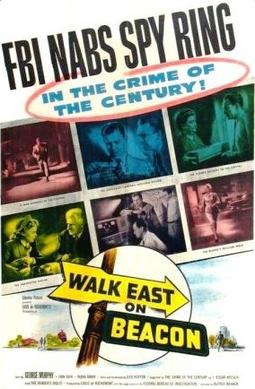
Walk East on Beacon is a 1952 American film noir drama film directed by Alfred L. Werker and starring George Murphy, Finlay Currie, and Virginia Gilmore. It was released by Columbia Pictures. The screenplay was inspired by a May 1951 Reader's Digest article by J. Edgar Hoover entitled "The Crime of the Century: The Case of the A-Bomb Spies." The article covers the meeting of German physicist and atomic spy Klaus Fuchs and American chemist Harry Gold as well as details of the Soviet espionage network in the United States. Gold's testimony would later lead to the case against Julius and Ethel Rosenberg for treason. The film substitutes real atomic spying with vague top secret scientific programs. Extensive location shooting was done in New England, around Washington Union Station and in FBI laboratories.
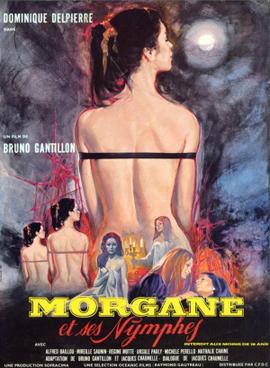
Girl Slaves of Morgana Le Fay is a 1971 French film by Bruno Gantillon, an erotic horror tale involving Morgan le Fay and a castle full of women in the French countryside. Morgan rules the island Avalon as if it were Lesbos in a lesbian exploitative film praised by critics for its setup and characters, and named a "neglected Eurotrash classic".
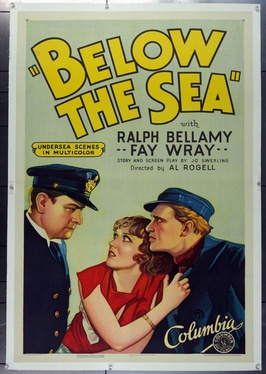
Below the Sea is a 1933 American Pre-Code action film directed by Albert S. Rogell and starring Fay Wray, Ralph Bellamy and Esther Howard.
The Moldavian campaign or the Polish–Ottoman War of 1497–1499 was an unsuccessful war against the Moldavians, supported by the Turks, led by John Albert of Poland who set out with an army of 80,000 men with the objectives of deposing Stephen the Great of Moldavia and replacing him with Sigismund Jagello, reconquering the fortresses on the northern Black Sea coast and taking control of Crimea and the Danube Delta.
















